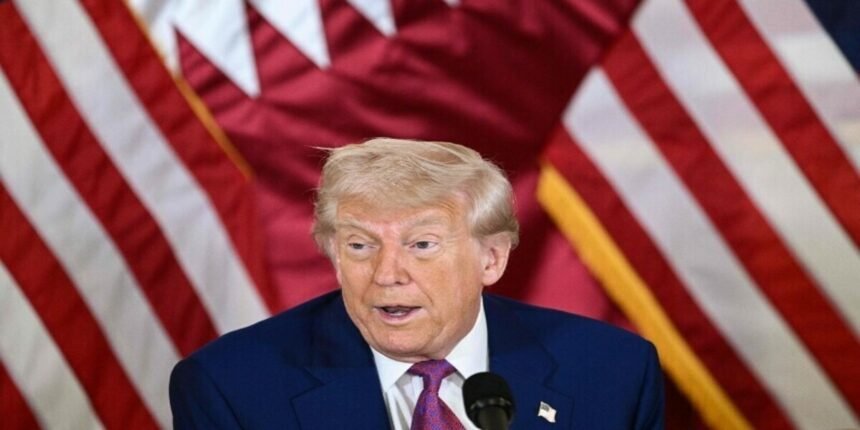US President Donald Trump has made a direct appeal to Apple CEO Tim Cook, urging him to stop expanding manufacturing in India and instead focus on producing Apple products within the United States, according to remarks made during his recent visit to Qatar.
“I had a little problem with Tim Cook yesterday,” Trump told reporters. “I said to him, Tim, you’re my friend, I treated you very good. You’re coming here with $500 billion, but now you’re building all over India.”
Trump was referring to Apple’s previously announced plan to invest $500 billion in the US over the next four years, while also ramping up production in India and Vietnam to diversify its global manufacturing network.
In response, Trump said he made it clear to Cook that he expects Apple to scale up production inside the US, not overseas.
“We want you to build here,” Trump reportedly told the Apple CEO, highlighting the administration’s push for reshoring American manufacturing.
Read More: India Pushes for International Control of Pakistan’s Nuclear Arsenal
Despite the fact that India has offered a zero-tariff agreement to facilitate smoother trade, Trump criticized the South Asian country’s high tariff barriers, calling them among the highest in the world.
“It’s very hard to sell in India,” Trump said, emphasizing the trade imbalance and his dissatisfaction with Apple’s increasing dependence on Indian production hubs.
Earlier this month, Tim Cook stated that the majority of iPhones to be sold in the US in the coming months will be manufactured in India, while Vietnam will become the main production center for iPads, Macs, Apple Watches, and AirPods intended for the US market.
“We do expect the majority of iPhones sold in the US will have India as their country of origin,” Cook noted.
He also confirmed that China will remain the primary manufacturing base for Apple products sold outside the United States.
Apple, one of the most affected tech companies in the ongoing US-China trade dispute, has seen its shares drop by 5.1% since the latest round of tariffs were announced.
Read More: Spanish PM Sparks Tensions by Calling Israel a ‘Genocidal State
The company has long relied on China’s low-cost manufacturing, but rising geopolitical tensions and tariffs are forcing a significant realignment in its global supply chain.
In a parallel development, the US and China recently agreed to a 90-day truce, rolling back some punitive tariffs in a bid to ease their prolonged trade conflict and foster a more stable economic environment.
While this signals a temporary pause in hostilities, Trump’s push for domestic production suggests a continued focus on economic nationalism and reshoring critical industries.


